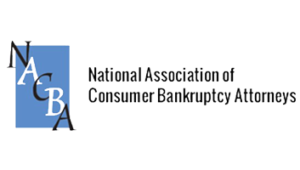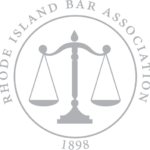Filing bankruptcy is a significant decision that can have far-reaching effects. For many struggling with overwhelming debt, a Chapter 7 bankruptcy offers a fresh start and a path to financial stability. As a Rhode Island consumer bankruptcy lawyer, I have witnessed firsthand the transformative impact that Chapter 7 bankruptcy can have on clients’ lives. This article will focus on the numerous benefits of filing for Chapter 7 bankruptcy, providing you with a comprehensive understanding of how it can help you regain control of your finances and move forward with confidence.
What is Chapter 7 Bankruptcy?
Chapter 7 bankruptcy, also known as “liquidation bankruptcy,” is a legal process that allows individuals to discharge most of their unsecured debts. Unsecured debts are those that are not backed by collateral, such as credit card debt, medical bills, and personal loans. In a Chapter 7 bankruptcy, a court-appointed trustee sells non-exempt assets to repay creditors, and the remaining eligible debts are discharged.
Benefits of Filing Chapter 7 Bankruptcy
1. Immediate Relief from Debt
One immediate benefit of filing for Chapter 7 bankruptcy is the automatic stay. This legal provision halts all collection activities, including phone calls, wage garnishments, lawsuits, and foreclosure proceedings. The automatic stay provides breathing space for individuals to focus on their bankruptcy case without the constant pressure from creditors.
2. Debt Discharge
The primary advantage of Chapter 7 bankruptcy is the discharge of eligible debts. Once the bankruptcy process is complete, most unsecured debts are wiped out, meaning you are no longer legally obligated to repay them. This discharge includes credit card debt, medical bills, personal loans, and some tax debts. The relief from these financial burdens allows you to start afresh and rebuild your financial life without the weight of past debts dragging you down.
3. Protection of Exempt Assets
While Chapter 7 bankruptcy involves the liquidation of assets, it is important to note that many assets are exempt from liquidation under state and federal laws. Exempt assets typically include necessary items such as your primary residence, a modest car, clothing, household goods, tools of trade, and certain retirement accounts. These exemptions ensure that you retain essential items needed to maintain a basic standard of living while you work toward rebuilding your financial stability.
4. Speed and Efficiency
Chapter 7 bankruptcy is often preferred for its relatively quick and efficient process. Unlike Chapter 13 bankruptcy, which involves a repayment plan lasting three to five years, Chapter 7 cases are typically resolved within three to four months. This expedited timeline allows you to move on with your life and start rebuilding your credit sooner.
5. No Repayment Plan
In Chapter 7 bankruptcy, there is no requirement to create and adhere to a repayment plan. This contrasts with Chapter 13 bankruptcy, where debtors must develop a plan to repay a portion of their debts over several years. The absence of a repayment plan in Chapter 7 means that you are not burdened with ongoing financial obligations, allowing you to focus on rebuilding your financial future more effectively.
6. Credit Score Rebound
While filing for bankruptcy may have an initial negative impact on your credit score, it is typically minimal and short-lived. It is important to recognize that many individuals who file for Chapter 7 bankruptcy have already experienced significant damage to their credit due to missed payments and high debt levels. The discharge of debts through Chapter 7 provides an opportunity to start anew and gradually rebuild your credit score. Many individuals find that their credit scores begin to improve within a year or two after filing for bankruptcy, as they are no longer weighed down by unmanageable debt.
7. Peace of Mind
Financial stress can take a severe toll on your mental and physical well-being. Constant worry about debt and creditor harassment can lead to anxiety, depression, and other health issues. Filing for Chapter 7 bankruptcy can provide a sense of relief and peace of mind, knowing that you are taking proactive steps to address your financial challenges and regain control of your life. The automatic stay and eventual debt discharge offer a fresh start and a chance to focus on your future without the constant burden of debt-related stress.
8. Improved Financial Habits
Going through the bankruptcy process often leads individuals to reassess their financial habits and make necessary changes to avoid future financial difficulties. Many people who file for Chapter 7 bankruptcy become more financially literate and adopt better budgeting, saving, and spending practices. The experience can serve as a valuable lesson, helping you to develop healthier financial habits that contribute to long-term stability and success.
9. Retention of Retirement Accounts
One of the critical advantages of Chapter 7 bankruptcy is the protection of retirement accounts. Federal law exempts most retirement accounts, including 401(k) plans and IRAs, from being used to repay creditors. This means that your retirement savings remain intact, allowing you to secure your financial future even after filing for bankruptcy. Protecting these accounts ensures that you do not compromise your long-term financial security in the process of addressing your current debt issues.
10. No Debt Collection Harassment
Creditor harassment can be one of the most stressful aspects of dealing with overwhelming debt. Phone calls, letters, and other collection activities can disrupt your daily life and contribute to a sense of constant anxiety. Filing for Chapter 7 bankruptcy puts an end to creditor harassment, as the automatic stay prohibits creditors from contacting you to collect debts. This respite allows you to focus on the bankruptcy process and your path to financial recovery without the added stress of dealing with aggressive creditors.
Eligibility and Considerations
While Chapter 7 bankruptcy offers numerous benefits, it is essential to understand the eligibility requirements and potential drawbacks before deciding to file. Not everyone qualifies for Chapter 7 bankruptcy, and certain factors must be considered to determine if it is the right option for you.
Means Test
To qualify for Chapter 7 bankruptcy, you must pass the means test, which compares your income to the median income for a household of your size in your state. If your income is below the median, you are likely eligible for Chapter 7. If your income slightly exceeds the median, you may still qualify by demonstrating that your disposable income is insufficient to repay your debts. The means test is designed to ensure that Chapter 7 bankruptcy is reserved for individuals who truly cannot afford to repay their debts.
Non-Dischargeable Debts
While Chapter 7 bankruptcy discharges most unsecured debts, some debts are non-dischargeable. These include certain tax debts, student loans (unless undue hardship can be proven), child support, alimony, and debts resulting from fraud or malicious acts. It is crucial to understand which debts will not be discharged in your bankruptcy case to have a clear picture of your post-bankruptcy financial situation.
Impact on Credit Report
Filing for Chapter 7 bankruptcy will remain on your credit report for up to ten years. This can affect your ability to obtain credit, secure housing, or find employment in some cases. However, many individuals find that the immediate relief from debt and the opportunity to rebuild their credit outweigh the potential long-term impact on their credit report. With responsible financial behavior, you can work to improve your credit score and demonstrate to potential creditors and employers that you have taken steps to regain financial stability.
Loss of Non-Exempt Assets
While Chapter 7 bankruptcy allows you to retain exempt assets, non-exempt assets may be sold by the trustee to repay creditors. This can include valuable items such as second homes, luxury vehicles, and expensive jewelry. It is essential to evaluate your assets and determine what you may be required to surrender during the bankruptcy process. In many cases, individuals find that the relief from debt outweighs the loss of non-exempt assets.
Potential for Dismissal
A Chapter 7 bankruptcy case can be dismissed if you fail to comply with court requirements, such as completing the mandatory credit counseling and debtor education courses, providing accurate financial information, or cooperating with the trustee. It is crucial to adhere to all requirements and work closely with your bankruptcy attorney to ensure a successful outcome.
The Role of a Bankruptcy Attorney
Navigating the bankruptcy process can be complex and overwhelming, making the role of a knowledgeable bankruptcy attorney invaluable. An experienced attorney can help you understand the intricacies of Chapter 7 bankruptcy, assess your eligibility, and guide you through each step of the process. Here are some ways a bankruptcy attorney can assist you:
Evaluation of Your Financial Situation
A bankruptcy attorney will conduct a thorough assessment of your financial situation to determine if Chapter 7 bankruptcy is the best option for you. They will review your income, expenses, debts, and assets to provide personalized advice and help you make an informed decision.
Means Test and Eligibility
Your attorney will help you complete the means test to determine your eligibility for Chapter 7 bankruptcy. They will ensure that all necessary documentation is accurately completed and submitted, increasing the likelihood of a successful outcome.
Asset Exemptions
An attorney will help you identify which assets are exempt under state and federal laws, ensuring that you retain as much of your property as possible. They will also guide you in understanding which non-exempt assets may be subject to liquidation.
Filing and Documentation
Filing for Chapter 7 bankruptcy involves extensive paperwork and strict deadlines. A bankruptcy attorney will handle the preparation and filing of all necessary documents, ensuring that everything is submitted accurately and on time. This minimizes the risk of errors that could lead to delays or dismissal of your case.
Representation and Advocacy
Your attorney will represent you in all court proceedings and communications with the bankruptcy trustee. They will advocate on your behalf, addressing any issues that arise and ensuring that your rights are protected throughout the process.
Credit Counseling and Debtor Education
Completing mandatory credit counseling and debtor education courses is a requirement for filing for Chapter 7 bankruptcy. Your attorney will guide you in selecting approved courses and ensure that you complete these





